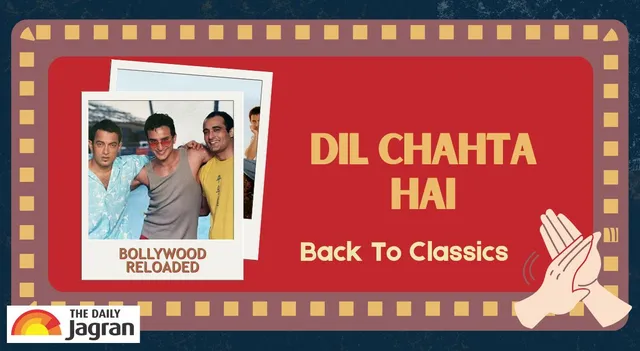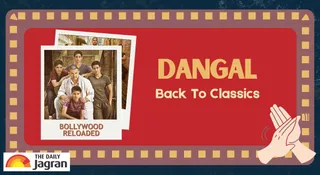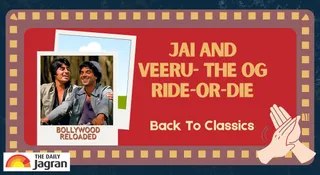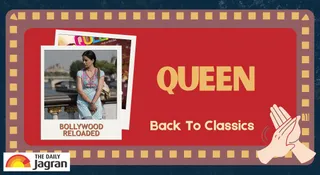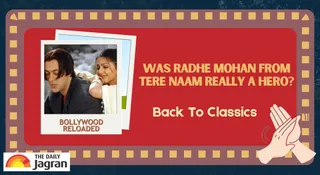- By Aarushi Raina
- Sun, 02 Nov 2025 07:04 PM (IST)
- Source:JND
When Dil Chahta Hai was released in theatres in 2001, it redefined friendship and brotherhood. The film became one of the highest-grossing films of that time and marked Farhan Akhtar's directorial debut in Bollywood. A story of Akash, Sameer and Sid, brought to life by Aamir Khan, Saif Ali Khan, and Akshaye Khanna, their performances received widespread critical acclaim. With its fresh plot of youth and the birth of the Goa trip dream, which was rarely touched in Indian cinema in the early 2000s, Farhan created an evergreen classic that remains relatable even today. Not only this, the most relatable and hard-hitting lines about friendship, as said by Sid in the film, "We may not even meet once in ten years," reflecting how life takes everyone to their own destinations.
Dil Chahta Hai Movie Gave Birth To Goa Trip Dream
Dil Chahta Hai, which essentially invented the concept of the Goa trip, giving the state a level of popularity that it had never had before. Prior to the film, Goa was mostly used as a backdrop in movies for dance numbers or party scenes. However, what Akhtar did with his narrative turned it into something more meaningful, a metaphor for escape, rebuilding and connection. A road trip that feels even more needed nowadays, especially for Gen Z. The film's opening road trip sequence, where three best friends drive down from Mumbai to Goa in a car with music, fun and unfiltered chats, became a cultural icon. For many urban Indians, the trio and its trip symbolised freedom in a way Hindi cinema had never had before.
Dil Chahta Hai became one of the reasons for taking friends-only trips, a relatively new concept at that time. That one iconic stretch of the film, the fort overlooking the ocean, where Akash, Sameer and Sid share laughter and intense talks with 'Dil Chahta Hai' title track, created an emotion that would echo for decades.
Recommended For You
Setting the standard for both friendships and spontaneous trips with friends, this particular sequence from Farhan Akhtar's Dil Chahta Hai (2001) spoke about just how important it is to find some time to unwind, to have deeper conversations with the people we hold close. pic.twitter.com/V8F24FVipx
— prime video IN (@PrimeVideoIN) May 7, 2022
How Dil Chahta Hai Was Ahead Of Its Time?
In the early 2000s, friendship in Hindi cinema was portrayed in a melodramatic, simplistic, yet less impactful way, focusing more on personal struggles. However, Dil Chahta Hai introduced an emotionally charged storyline where friends could fight, grow apart and be flawed yet still stand by each other. The film was relatable and modern, the first portrayal of millennial India. It wasn't just about three friends with different personalities, but also about a generation trying to find itself. It was real, imperfect, and deeply relatable, something which was rarely seen before in the mainstream of Indian cinema.
In What Ways Was Film Made Differently
In the 90s era of Hindi cinema, romance was more idealised, with concepts like love at first sight, happily ever after and others. However, in Dil Chahta Hai, love was presented as uncertain, hesitant and introspective. In the movie, Akash mocked love until he experienced it by falling in love with Shalini, played by Preity Zinta, while Sameer stumbled through heartbreak and confusion, but he also found love in Pooja, portrayed by Sonali Kulkarni. Sid was different in his own way; he fell for an older woman, Tara, played by Dimple Kapadia in the movie, a taboo-breaking age-gap relationship subject. The relationship was treated delicately and without judgment by his friends. For the 2001 audience, this story was radical and a fresh narrative.
Dil Chahta Hai is more than just a film that gave us Goa trip goals. Akash, Sid and Sameer taught us so much about friendship, family and relationships. For that and for all the photoshoot ideas that this film gave us, we will always be grateful ❤️#20YearsOfDilChahtaHai pic.twitter.com/d8YFXjQNxO
— Netflix India (@NetflixIndia) August 10, 2021
Beyond the storyline, the soundtrack also added a youthful, emotional, and genre-bending touch. Songs like Dil Chahta Hai, Jaane Kyon, Koi Kahe Kehta Rahe, and others, which reflected the mood and transitions in the lives of the lead characters.
ALSO READ: Is Shah Rukh Khan's Raj From Chalte Chalte A Dream Guy Or Relationship Nightmare?
In Hindi cinema, Dil Chahta Hai broke the preconception of age-old stereotypes of characters and relationships. The film introduced a more realistic and relatable portrayal of urban Indian youth and their hard-hitting experiences. This 2001 film played a pivotal role in the careers of Aamir Khan, Saif Ali Khan and Akshaye Khanna and was a commercial success at the box office upon its release. Although it didn't become a massive blockbuster, it ultimately achieved cult status.

